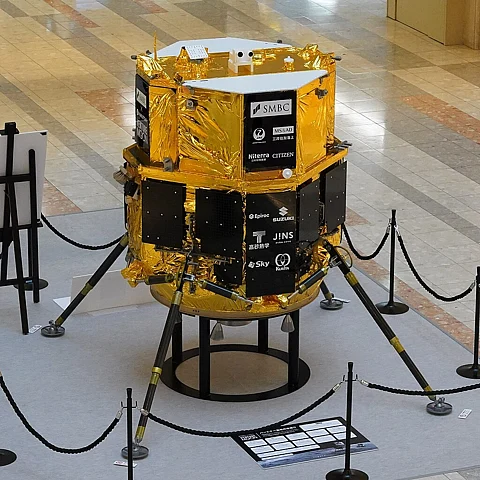

A private Japanese moon mission ended in failure on Friday after the unmanned Resilience spacecraft likely crashed during its landing attempt. Tokyo-based startup ispace had aimed to become the first private company outside the U.S. to achieve a controlled lunar touchdown.
Mission control reported that the spacecraft had initiated its final descent and fired its main engine as planned to slow its approach. However, contact was lost shortly after, with data suggesting the lander failed to decelerate sufficiently for a soft landing.
"Based on currently available data, we assume the lander performed a hard landing. Communication is unlikely to be restored, so we have concluded the mission," ispace said in a statement.
The tense final moments were broadcast live, with an announcer signing off with the company’s motto: "Never quit the lunar quest." A gathering of 500 employees, investors, and government officials fell silent as the spacecraft disappeared from telemetry less than two minutes before its scheduled landing.
This marks ispace’s second failed lunar landing attempt, following a crash in 2023. Despite the setback, CEO Takeshi Hakamada vowed to continue, drawing parallels to SpaceX’s early struggles.
"SpaceX also faced multiple failures before dominating the launch market," Hakamada told reporters. "We must take this seriously, learn from it, and move forward."
The Resilience lander carried a four-wheeled rover and five external payloads worth $16 million, including a NASA contract to collect lunar soil samples. Its intended landing site was Mare Frigoris, a plain near the moon’s north pole.
Lunar landings remain notoriously difficult, with only five nations—Russia, the U.S., China, India, and Japan—having achieved soft landings. Private companies are now entering the race, with U.S.-based Intuitive Machines and Firefly Aerospace having already succeeded.
Ispace’s stock price plummeted 29% following the failure, but CFO Jumpei Nozaki confirmed funding is secured for a third attempt. The company is collaborating with U.S. firm Draper on a new lander, Apex 1.0, targeting a 2027 mission to the moon’s far side.
Hakamada acknowledged the need to regain investor trust but emphasized resilience. "This is not the time to cry," he said. "We must resolve these issues and succeed in Missions 3 and 4."
The mission’s failure underscores the risks of commercial lunar exploration, but ispace remains determined. As Hakamada noted, "If failures discourage bold attempts, society loses the chance for growth."